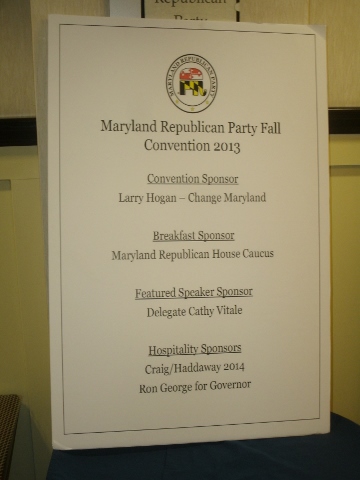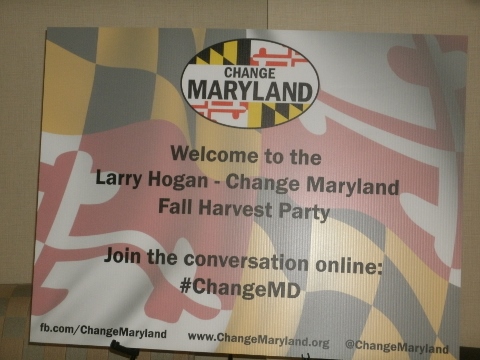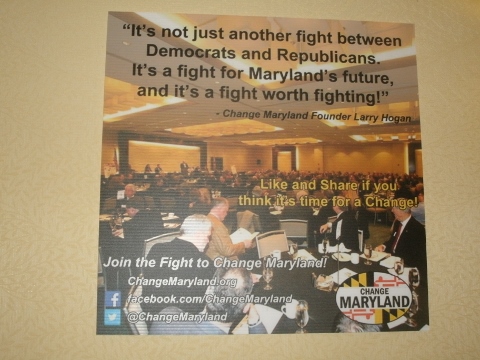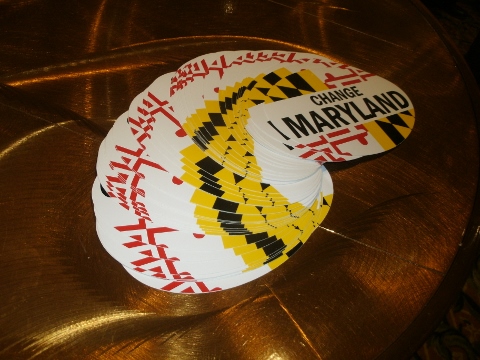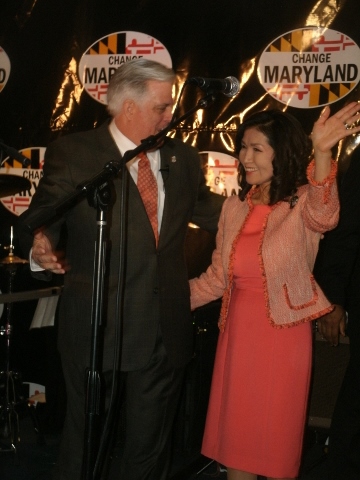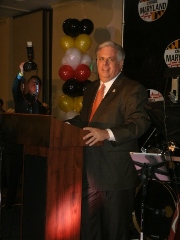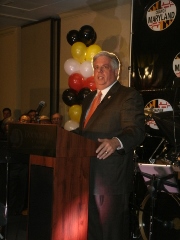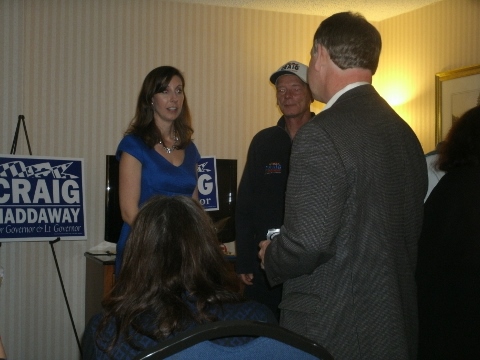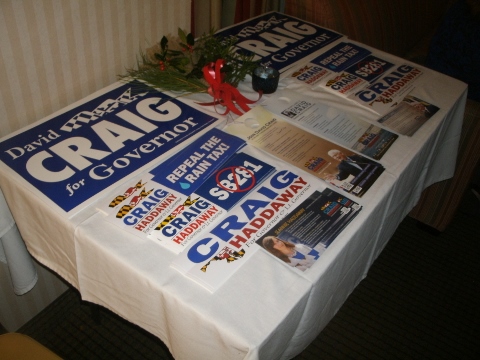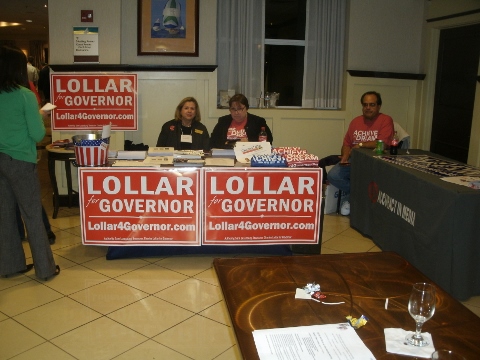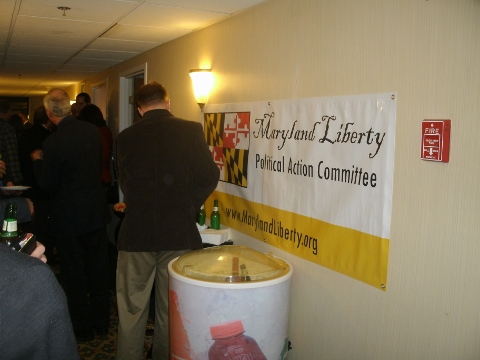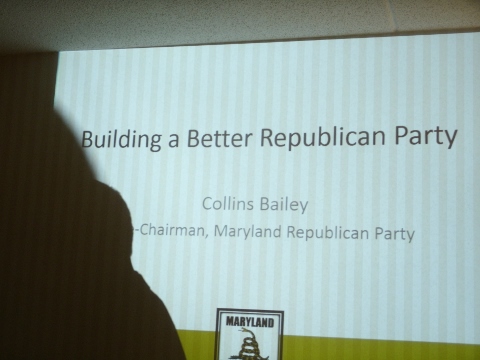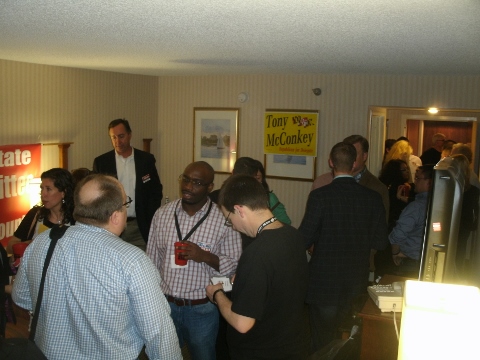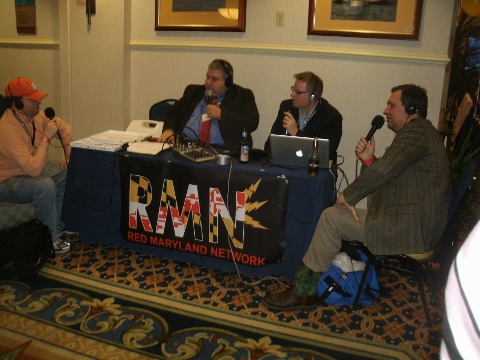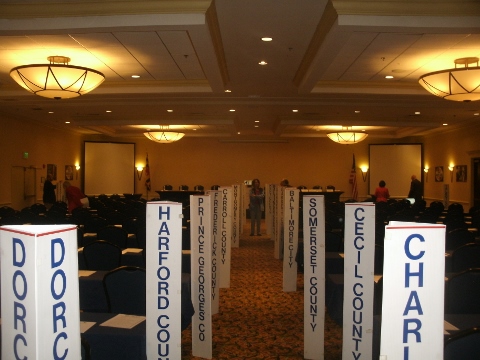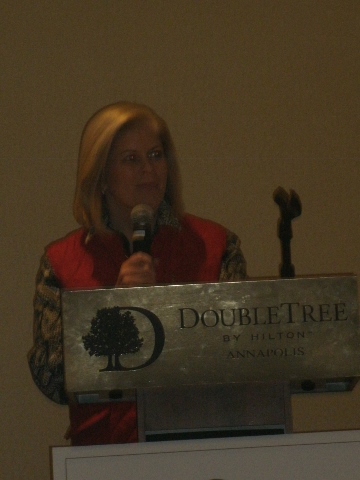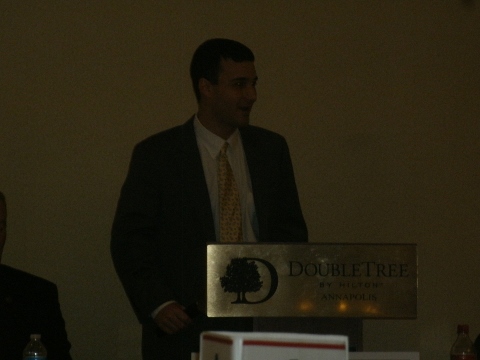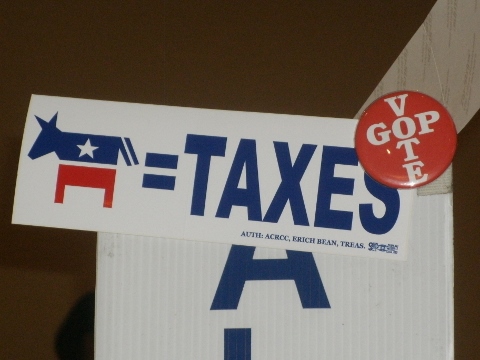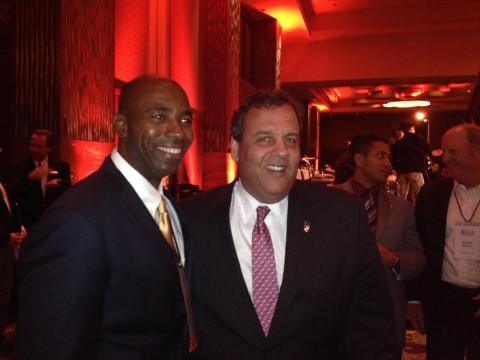Last month, in the midst of ongoing controversy over the foibles of one particular Maryland campaign, I put up a post reminding people it’s about the issues. And while I have a favorite in the race just simply based on that which I’ve heard him say and the fact he’s a very convincing speaker, I thought the time had come to look at his and the other campaigns in a much more critical light. After all, our nation elected a guy who had a very positive message for hope and change – now many are hoping we survive as a nation to change things back.
As part of that I also resurrected a feature I used to determine my presidential picks over the last two cycles. Perhaps it’s the curse of an overly analytical mind, but I like to break things down into numbers so I devised a point system to rate individual candidates. Granted, this is still somewhat subjective and arbitrary but it’s the best I can do.
What I will do over the next few weeks is look at a number of issues I feel are the most important in the race. Some of them are covered well in-depth among the several sources I cite, and I may even expand this exercise as I find more information and the campaigns roll on. In terms of having a plethora of source material, I thought the subject of education would be a good place to begin. While it only ranks in the middle among my key issues, it’s much higher on the list for many so I thought it a good entree.
The first part is worth 9 points on my 100-point scale. I’ll begin with the source material, add some compare and contrast with Democratic opponents (who have written quite a bit on this subject) then wrap up with my thoughts. David Craig will be covered first, followed by Ron George and Charles Lollar on the GOP side.
**********
David Craig: MDEd’s budget has increased from $265 million in 2007 to $307 million this year. The state agency employs 1600 government workers. That money would be better spent in Maryland classrooms where it would buy much-need (sic) supplies and enhance teacher salaries.
(snip)
As Governor, I will reduce the administrative budget of the state education department and pass the cost-savings on to local schools. I will end common core, return the money to Washington and let teacher’s (sic) teach. The sound budgeting practices I will apply to the K-12 system will be required of the University System of Maryland to make college tuition affordable. I will support school choice, charter schools and other proven measures to increase competition to ensure no child is trapped in a school that does not work. (campaign site)
*
Craig’s answer to the problem: “We don’t need statewide testing,” and as governor, he would advocate for their abolition. Instead, he said that tests should be developed at the school and classroom level, “That’s why we hire teachers.”
Dagger: Some states have delayed mandatory implementation of the Common Core. Should Maryland follow suit?
Craig: “The only reason Maryland [adopted the Common Core] was they saw they could get all this money. How much went to teachers? How much went to the classroom? None of it.”
As for a statewide delay in implementing the Common Core, put Craig down as a “definite yes.” (interview with The Dagger, June 25, 2013)
*
But there’s duplication, so much duplication, in government – county government and school board government. I have a capital projects committee, they have a capital projects committee – why do we need both? I have the same guys that do the investigations, the inspections and all that stuff, I have a procurement department. I don’t buy chalk and all that stuff, but they have a procurement department. That’s duplication. I have a lawyer, a law department, they have a law department – duplication. They have a human resource department, I have a human resource department, duplication. Now, do I get rid of all those employees? No, but at least get rid of the top person. The person who’s making $150,000, instead of having two of them, you only have one. And you can probably merge a lot of things together and only have office – and none of that takes place in the classroom. (monoblogue interview, June 11, 2013)
Ron George: Grading each school’s educational success only on outcome based measures, not on the amount of money spent on education and construction or pay.
Create a “scholarship” system where students that pass an entrance exam to a non-public school will receive money to attend without the state having to pay a penny more. Currently it costs Maryland $13,900 each year to educate a student, the national average is $10,400.
By allowing a “scholarship” of up to one quarter that amount, our public school teachers will have smaller class sizes, better pay, more planning time, and the state saves some money while all students receive a more tailored education according to their abilities.
By creating a Baltimore Children’s Zone in the failing high crime areas modeled after the effective Harlem Children’s Zone where grades and attitudes have improved immensely.
By the creation of charter schools where immigration numbers are high and test scores are dropping such as in Montgomery County so that the immigrant population can receive education tailored to help them get acclimated into their new society, addressing language and other needs while other students can concentrate on their needs.
By promoting Government Civics Courses and Financial Literacy courses. Students need to understand the form of government and the economic system they will be a part of, otherwise they will graduate unprepared. (campaign site)
*
“I have opposed Common Core from its onset,” said Delegate George. “Parents have the right to have their voices heard in all matters concerning the education of their children. This is a vast overreach by the federal government that should not even be considered until it has been thoroughly vetted by parents,” continued George.
“It is very clear to me that Common Core is nothing but an attempt by the federal government to take control over our children’s education and to force parents to sit on the sideline. It is outrageous and I intend to fight it with all of my energy,” said George. (press release, September 23, 2013)
*
As Common Core has been in the news, Ron weighed in on how Maryland adopted it. The package of bills was fourfold, he explained, with the first two not being too obnoxious – but once they passed the fix was in for the bad portions. Ron stated he was “very much against” the mandates in Common Core. It’s being forced on the counties, he later said, but was “totally dumbing down” students. (WCRC meeting, monoblogue, September 23, 2013)
*
George even floated the idea of $4,000 state-funded scholarships for students who pass private school entrance exams. He said the measure would reduce classroom sizes and save the state $6,000 off the nearly $13,900 price tag attached to each public school student, with the remaining $3,900 going toward pay raises for public school teachers. (SoMDNews, June 26, 2013)
Charles Lollar: What we should try to do is reward teachers whose students comprehend the subject matter. We should give more local control to teachers and parents, while taking it away from the educational bureaucracy. We should allow parents to choose the schools they want to send their children to and not punish them for doing so. We should allow a stronger voucher program offering them the chance to compete with public institutions. We conservatives want what’s best for all of our children and have learned from experience what we shouldn’t do. Having blanket standards in a “one-size-fits-all” approach is NOT what we should do. (release quoted on monoblogue, July 1, 2013)
*
He is committed to joining with leaders and law enforcement officials to create more community centers for at-risk youth that will help them learn the life and business skills necessary for healthy lives and careers. (campaign website, “Platform“)
*
As Governor, Charles Lollar will fight for children’s education with a suite of policies – more economic opportunity offering the hope of more jobs, more resources in the classroom instead of in the administration building, innovative ideas that will engage student, parent and teacher in a rising tide of educational achievement.
He will fight to remove obstacles to learning. He is pro-innovation, pro-school choice, and pro-educator. With their parents and teachers, he will fight to remove obstacles that deny children the opportunity to achieve and be valued.
Charles Lollar will strengthen the weakened charter school system and promote the successful methodologies in education.
Charles Lollar will strongly advocate to the State Board of Education, County BOEs and individual districts to embrace charter schools, private schools, and home-schooling as excellent and alternative paths for the children of our state to learn and achieve to the benefit of all Marylanders.
Charles Lollar will work with local school boards to reward dedicated teachers in ways that encourage and inspire them to continue working in Maryland school systems.
(snip)
(W)e know that Common Core will not work.
We know from experience and repeated tries that “one-size-fits-all” government does not work. We tried No Child Left Behind and Race to the Top, but have you visited the schools in Baltimore City or Prince George’s County lately? How are these programs working out for those precious children and their hard working parents? We shouldn’t continue down a road of failure.
As Governor I will give more local control to teachers and parents, and reduce the role and size of educational bureaucracy. I will institute a strong voucher program. We will work to allow parents to choose the schools they want to send their children to and not be punished for doing so. And we will reward teachers whose students comprehend the subject matter. (campaign website, “Education“)
*
“If we’re spending $6 billion a year on education, why in the world can we not provide pens, paper, and pencils for our students in the classroom?” (blogger interview accessed via Red Maryland, June 24, 2013)
*
Lollar would pave the way for school choice by allowing tax dollars to follow the child, and do more to ensure that taxpayer dollars are aimed at teachers rather than administrators. “We have to demand academic excellence,” Lollar told me. (Real Clear Markets, September 3, 2013)
**********
On the Democratic side, all three candidates (Anthony Brown, Doug Gansler, and Heather Mizeur) have focused on education as well, with the key issue uniting them all being an expansion of public education to the pre-kindergarten level. Gansler, however, would include “targeted achievement grants” to schools serving immigrant families, more data collection, mentoring programs, and “learning bridge” programs to address after-school and summer breaks. Meanwhile, Mizeur would match Gansler in “investing” in after-school and summer programs, but also greatly expand the child care subsidy plan and revise the funding formula she complains is “out of date.”
**********
There’s no doubt we have a difference in philosophy here between Republicans and Democrats, but it also helps in this cause to explain my own.
It’s been a little over a year since I completed my book, and tucked within is a chapter on education. I’ll not blockquote the entire chapter, but the main thrusts of my argument fell into two categories:
- financial issues, where I advocate an approach of “money follows the child,” the idea of for-profit schools, and the insistence that Uncle Sam “butt out” of the education business so more local control can be established, and;
- curriculum issues, such as the lack of focus on basic subjects and critical thinking in the rush to score well on standardized tests, as well as the fading focus on vocational education
But I will steal one sentence from Chapter 11:
As it stands in America today, those environments for learning which tend to show the most success (namely, private schools and homeschooling) generally have the least to do with government regulation and the most to do with educating children through more rigid discipline, a course of study emphasizing classical subjects, and a greater sense of morality through faith-based studies.
Therein lies the rub. I understand there are only limited resources in a campaign and candidates can’t address every concern, so I can definitively say none of these guys is my perfect candidate insofar as education is concerned. But which ones are better?
Obviously the Democrats are in a headlong rush to put the government in control of your children – particularly those of the poorest among us who qualify for all the subsidies – at an earlier and earlier age, even collecting data on them from birth! Some might say this is to condition them for government control throughout their lives, fostering a sense of dependence. As is often the case, government seems to be the sole answer for the Democratic candidates; regardless of the question, I hope Marylanders are smarter than that.
Many will argue, though, that a child is not a commodity, and education is not a business. Yet there are inefficiencies in the system, and David Craig has the advantage of knowing the system as an educator himself. He also notes he will eliminate Common Core and refuse the federal money for that, which is a good start from weaning ourselves from the federal teat. He also advocated an end to statewide testing, vowed to enhance school choice, and suggested money should indeed follow the child (in another quote I now cannot source), all of which suggests a good beginning. The next steps, though, are to convince a skeptical public.
And this is key with what he says: he will create the budget. Yet there are some gaps in this financial approach: what about maintenance of effort? Will the counties be forced to account for any state shortfall, or will be give fiscal control back to the counties? One start would be sending up a repeal of the bill forcing counties into ever-increasing maintenance of effort despite locally-enacted revenue caps.
Based on the experience and the promising start, I give David 6.5 points of 9.
On the other hand, Ron George seems to view a larger state influence in several respects, although he joins his fellows in opposing Common Core. I interpret his call for “outcome based” measures as some sort of testing mechanism; unfortunately, we already suffer from overly “teaching to the test.” I will say, though, properly taught civics and financial literacy courses would be a plus. Just strike the environmental education requirement and substitute these classes.
Yet he advocates a limited dose of “money follows the child” with his scholarship program, with the savings going to teacher raises. The devil’s advocate in me asks, though: why give raises to the teachers who are already failing children enough to drive them to private schools?
Ron also advocates a program for inner-city Baltimore based on the Harlem Children’s Zone. In doing a little bit of research on the initiative, though, I came up with two questions: one is of leadership, since the HCZ notes a program takes 10-15 years to develop, so it will require leadership spanning gubernatorial administrations. The other is the 2:1 mix of private to public funds it had in 2008, when the white paper was developed. At the time the HCZ budget was $67 million, so presumably the state would need $20 to $30 million annually to run this program.
So I have to ask: if it was such a good idea, why isn’t it already in effect? Why wait for a particular governor?
Meanwhile, while Ron is for charter schools, the emphasis he has is on immersing those who aren’t native English speakers.
What I sense with Ron George is the willingness to try new things, but not those which step far outside the Big Education comfort zone we have now. I don’t get the sense of demanding parental and local control I get with Craig and (as you’ll see) Charles Lollar. Ron receives 4 of 9 points.
If you haven’t figured it out by now, Charles Lollar is an advocate for local control and money following the child. We get it, and I like the idea. In many respects, he and David Craig walk the same ground. And as I noted with David, he will have the bully pulpit of creating the budget to enact his wishes.
In fact, Charles seems to be a very strong advocate for charter schools, which is a good beginning to opening up the educational market. But the question is what strings will be placed on a “strong voucher program”?
I also have to ask: why is it the school’s responsibility to provide pens, paper, and pencils for students? If parents can make a school choice, don’t they also have the charge to send their child to school prepared?
Of the three candidates, Charles seems to have the most fleshing out of his policy to do. It’s something where I can give him 6 of 9 points but he can help his score out (or hurt it) depending on how he follows through. The mantras of school choice and local control are great, but more specifics would help voters understand how we get from point A to point B.
Because it’s early in the process and we have one more potential major candidate, I’ll hold off on the running total for now. I think my next subjects to tackle will be the first two I listed: election/campaign finance reform and illegal immigration.


